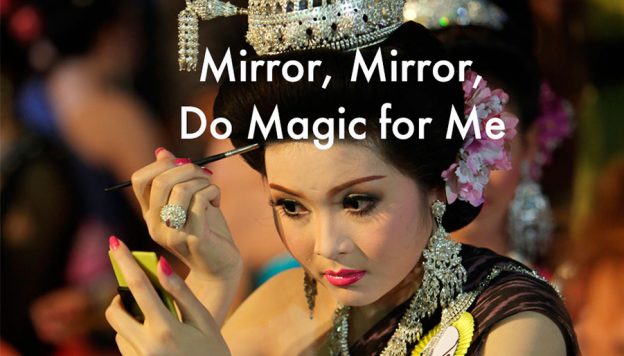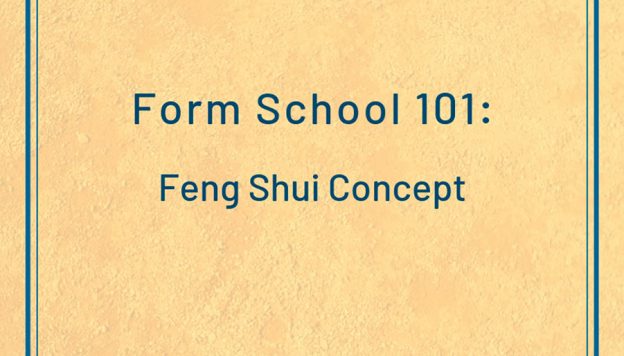Feng Shui does involve some common household items. But these items are generally not a major concern in Feng Shui. Nevertheless, one of these items has become famous – or notorious: the mirror.



Feng Shui does involve some common household items. But these items are generally not a major concern in Feng Shui. Nevertheless, one of these items has become famous – or notorious: the mirror.

In an earlier article, we said that everything in the universe is composed of Chi. It has matter, Chi energy, and information (consciousness or thought). These three aspects exist together.
Chi energy can be recognized through form, that is, the material manifestation. Different forms manifest different Chi. When the form is wholesome, the Chi is wholesome.

In the 90’s of the last century, I was invited to participate in a conference about water (Water Symposium). Some 50 experts and researchers were invited from around the world, and the discussion was based around, “What is good water?”, and “The Energy of Water”.
Each presenter was allowed forty minutes to present. My theme was Form Energy. Actually, this had nothing to do with water, but the organizer insisted that my topic was new and exciting, and wanted me to share it with the other scientists and researchers.

In our last post we cleared up the myth of the south-facing door.
In Feng Shui, when we talk about a house or apartment, there are three major elements: the main entrance, the kitchen, and the bedroom.

In Seattle, an American architect friend complained to me.
“This Feng Shui is really killing me!”
“What’s the matter?” I asked.
He explained that a client from Hong Kong had commissioned him to design a house – and insisted that, for the sake of good Feng Shui, the door had to face south. But on that particular piece of land it made no sense to have the main door facing south.
Continue reading

Among human relationships, the most important are those between man and woman – no matter whether between lovers, husband and wife, or friends.
We have talked about how Feng Shui affects human relationships. But the relationships between husband and wife living under one roof is only a small aspect of man-woman relationships.
Continue reading

A newlywed niece asked me about bedroom design. How should the bedroom be arranged to be supportive for her new family? She said there was so much information on the internet that she was confused about what to do.
She was right to be concerned. The bedroom is one of the most important three features of Feng Shui. It affects health, relationships, emotions, and child-bearing.
Continue reading

When William Blake wrote, “To see a world in a grain of sand and a heaven in a wild flower,” he was reflecting on the holographic concept of the universe where each part of the whole contains the complete information that reflects the whole.
In practice, this means that everything we observe on one scale can be translated to a smaller or larger scale.

15: Form School 101 – Feng Shui Concept
We have already discussed the basic concepts of Feng Shui. The diagram below summarizes these concepts in terms of the two pillars of thought that support Form School Feng Shui.

14: Does Good Luck Come From “the Blowing of Wind And the Flowing of Water”?
When Chinese people talk about Feng Shui, we often hear the phrase: “Feng sheng shui qi hao yun lai,” roughly translated it means “Good Luck comes with the blowing of wind and the flowing of water”. Somehow this saying sounds convincing in Chinese, but from the Feng Shui point of view the opposite is closer to being true.